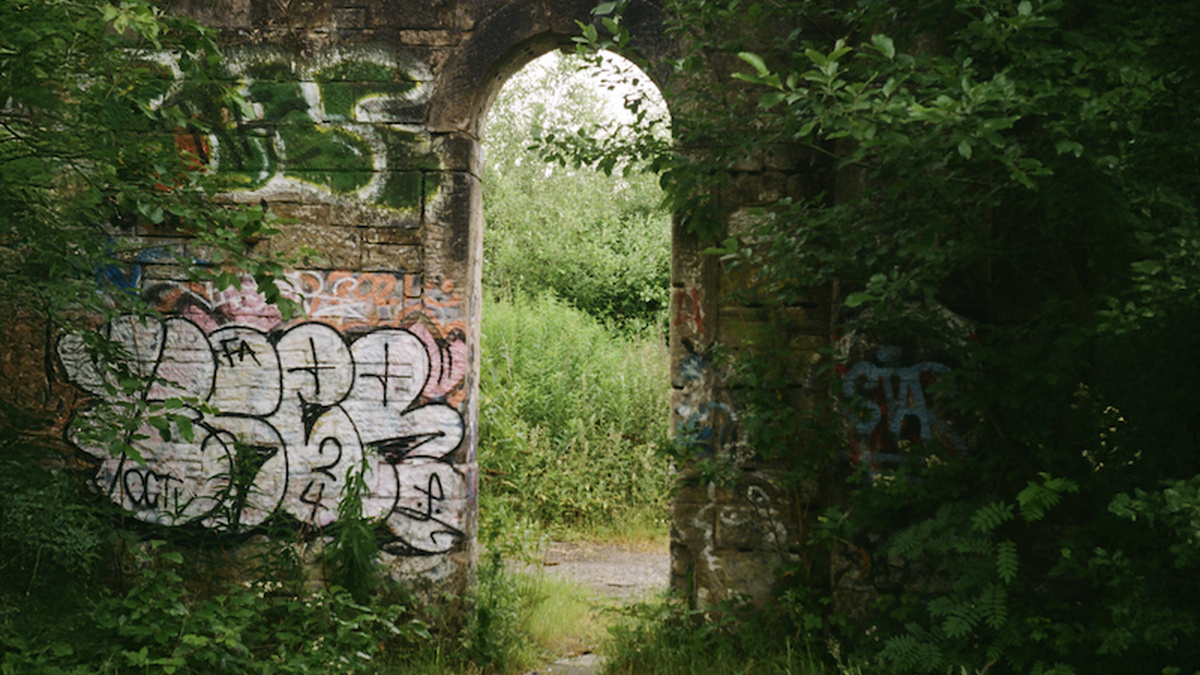Glasgow Seed Library
Movement Ecologies: Seed Collection
Wed 9 October 2024

Eleni Wittbrodti
These sessions are a space to share and learn core wildflower ID, elements of urban ecology and the use of photography for observation. At Glasgow Seed Library we aim to support seed-saving skills and encourage you to collect little pockets of seeds in your local area, including roadsides and verges where the soil seed bank expresses themselves.
This event is run in collaboration with 16th Nicholson Street Curatorial Collective as part of their River Topographies project with artist in residence Eleni Wittdbrodt who invites us to bring along any type of camera/ recording device (*optional) to help focus on plant observation skills
What is ‘Movement Ecology”?
"Movement ecology" traditionally refers to the study of how organisms navigate and interact with their environment. At Glasgow Seed Library, we apply the term to describe the dispersal of seeds across urban landscapes, emphasising the role of wind, wildlife, and humans in shaping plant communities.
Seeds have evolved to disperse through wind, wildlife, and other natural forces, unaware of the human-made boundaries that define countries and counties. By understanding the movement ecology of seeds, we can move beyond the rigid classification of plants as ‘non-native’ or ‘native,’ and see the fluidity of ecosystems.
Glasgow is home to a unique urban ecology, influenced by industry, colonialism and multiple routes of movement. Our urban way of life has influenced plants to adapt to disturbed and contaminated areas.
In Glasgow, derelict land, brownfields and unimproved grasslands can quickly become lost to urban development causing these highly resilient plants to be lost. By collecting and sowing these seeds, you become part of the movement ecology of Glasgow, mimicking seed carriers such as the free wind and the creatures (like squirrels, voles, boars) who no longer thrive or survive due to urbanisation.
“Weeds” or urban flora are often perceived as eyesores, causing minimal human visitation and giving a soil an ideal opportunity to repair by communicating with their own seed bank. Sometimes unique wildflower communities form in overlooked places.
Such spaces can be home to the wild carrot, wild parsnip, and meadow pea. Perhaps by understanding disturbed urban ecologies, we can gain a deeper insight into how the ancestors of our cultivars could have been adapted to reach our plates.
Meeting point:
Dry Docks Cafe, 581 Govan Rd, Govan, Glasgow G51 2AS Google Maps Link
Govan Graving Docks / Riverside Topographies: Govan Camera Club
Govan Graving Docks
The Govan Graving Docks, nestled along the River Clyde in Glasgow, is an iconic relic of Scotland’s shipbuilding past. Originally built in the late 19th century, these docks played a vital role in the industrial age, serving as a hub for ship repair and maintenance. Today, while much of the site remains derelict, it has also become a unique space where urban ecology and industrial history intersect. The Common Sandpiper (Conservation status Amber) has been recorded at Govan Graving Docks during March and April.
Riverside Topographies: Govan Camera Club
16NSt is a Glasgow-based collective and itinerant gallery consisting of Nell Cardozo, Aga Paulina Młyńczak and Kelly Rappleye. Govan Graving Docks is the first site of Riverside Topographies, a long-term curatorial and artistic research project by 16NSt Curatorial Collective with resident artist Eleni Wittbrodt. This investigation delves into the ecologies and communities residing along urban rivers, exploring what art practice can offer them and identifying both positive and negative practices associated with a place-based art commissioning approach. This led to starting the Govan Camera Club, following a historic tradition that encourages camera club participants to position themselves as both members of the community, and as reliable historical witnesses of ever-changing urban neighbourhoods. The camera club aims to create an opportunity to come together and learn from and with each other, among the many communities residing in Govan, and to co-produce a body of photographs of Govan, with the potential for local publication.
Info
Free
18+ years
Beginner friendly! No experience needed.
Wear suitable clothing for weather
Bring a botanical lens if you own one (shared botanical lens will be available to borrow)
Bring a notebook for note taking if you wish!
Contact hamshya@cca-glasgow.com for any enquiries
Accessibility
The route is likely to involve uneven and large gaps that could pose a risk to visitors. If you have any specific access requirements or need further assistance, we encourage you to contact hamshya@cca-glasgow.com to discuss how we can accommodate your needs.
About the organisers
Glasgow Seed Library is a collection of seeds and a community of growers. The library stocks organic and open-pollinated vegetable, herb and flower seeds for everyone to borrow, grow and save. Throughout the year, Glasgow Seed Library organises free workshops, talks and events around seed skills, community growing and earth care.
16 Nicholson Street aka 16NSt is a Glasgow-based collective and itinerant gallery which consists of Nell Cardozo, Aga Paulina Młyńczak and Kelly Rappleye. Currently, the organisation is managed by its two executive directors Nell Cardozo and Aga Paulina Młyńczak.We are a curatorial collective dedicated to enjoyment of experimental contemporary art while honouring our commitment to power redistribution, with particular attention to female-identifying, LGBTQ+ and class-marginalised artists. Our site-specific curatorial model focuses on fostering and commissioning long-term, research-led artistic projects foregrounding a new engagement with urban spatial politics and social histories in specific sites.
Event Collection
Part of Glasgow Seed Library